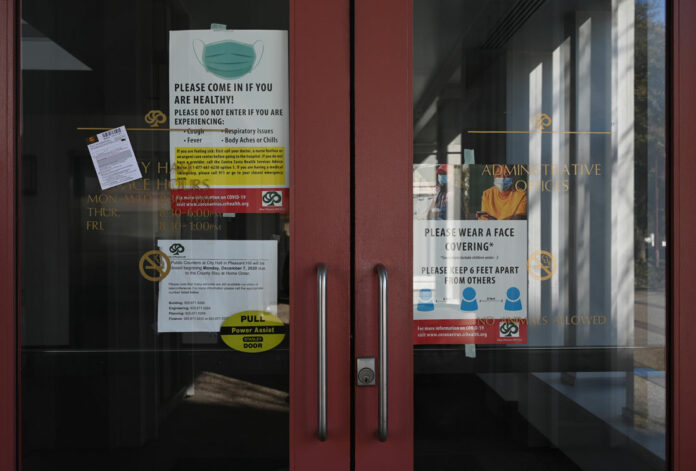Transmission of the flu, Covid-19 and respiratory syncytial virus is increasing statewide simultaneously and could lead to overwhelmed hospitals this winter, one of the state’s top health officials said Thursday.
Covid test positivity and case rates have climbed by roughly 25% over the last two weeks along with evidence of increased transmission in the state’s wastewater systems, according to state Health and Human Services Secretary Dr. Mark Ghaly.
Cases of flu and RSV, which causes infections in the respiratory tract, have also increased sharply in recent weeks and have already led to increased hospital populations across the state.
“In every category that we track, whether it’s test positivity, case rate numbers, wastewater surveillance, clinical surveillance, hospitalizations, we’re seeing increases for RSV, flu and Covid,” Ghaly said.
The state has also already seen levels of RSV among young children that rival previous years’ peaks, which usually occur in late January, February and March.
While most children infected with RSV will only deal with common cold symptoms like a fever, cough and runny nose, young children are at greater risk because their respiratory and immune systems are still developing.
“Certainly, if that’s all it were, we’d be a lot less concerned,” he said of the common cold symptoms. “But for infants and young toddlers in particular, RSV can cause a much worse experience.”
There is not currently a vaccine that prevents infection of RSV of serious illness, but Ghaly urged state residents to get a flu vaccine and a Covid booster vaccine, if eligible.
As of Nov. 3, just 13.3% of state residents have received an updated Covid booster, which targets two subvariants of the omicron variant as well as the original strain of the virus.
The booster is currently available to everyone ages 5 and up who received their last vaccine dose at least five months prior.
Ghaly also noted that it is not too late to get a flu or Covid vaccine and that it will still protect those who have yet to get either shot ahead of the winter holidays.
“We can’t always prevent you from getting an infection, but we do have some tools that can make it more likely that you don’t have severe disease,” Ghaly said. “And that severe disease is exactly what leads you to be hospitalized and … even lose your life.”
Copyright © 2022 Bay City News, Inc.










